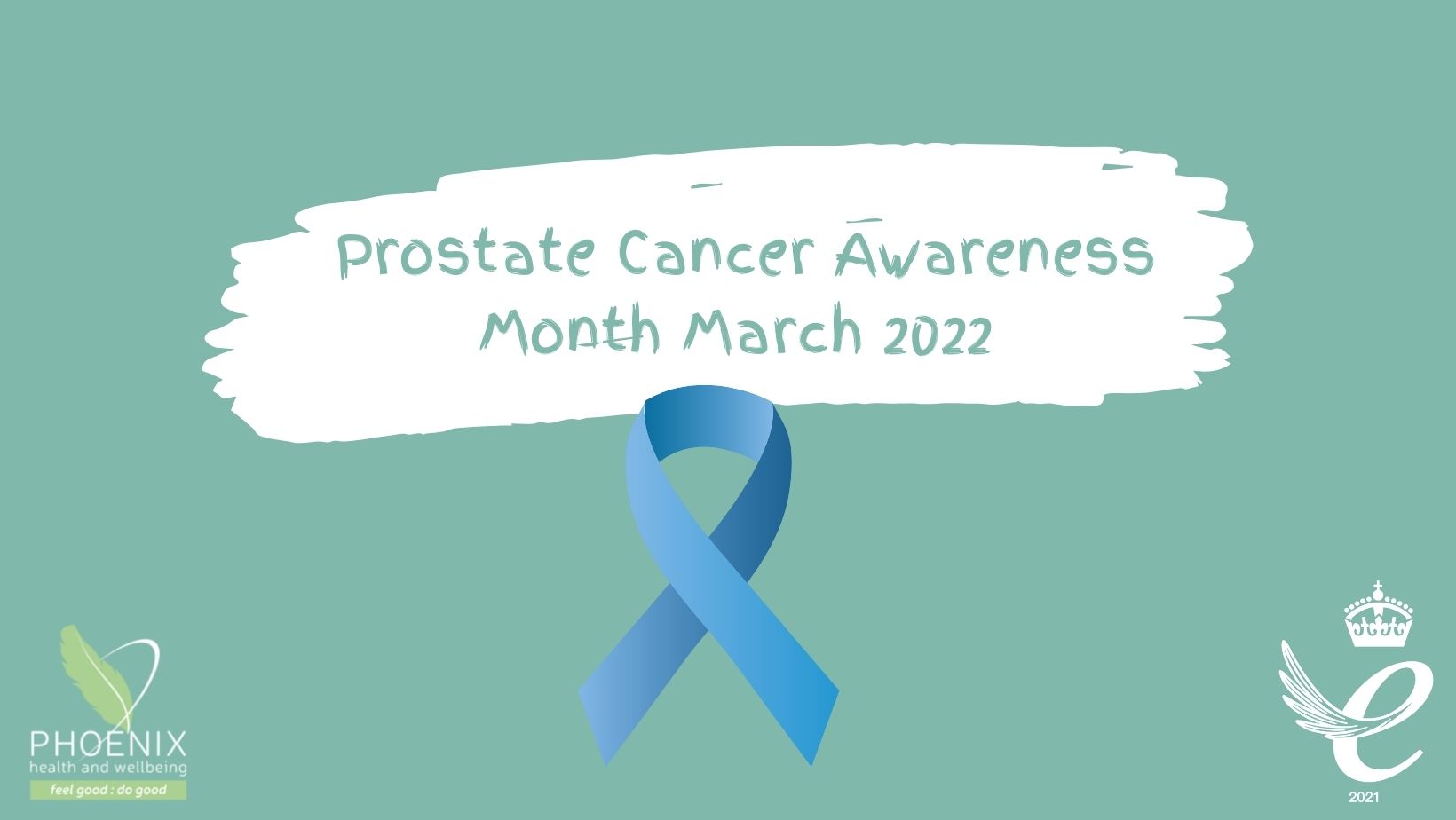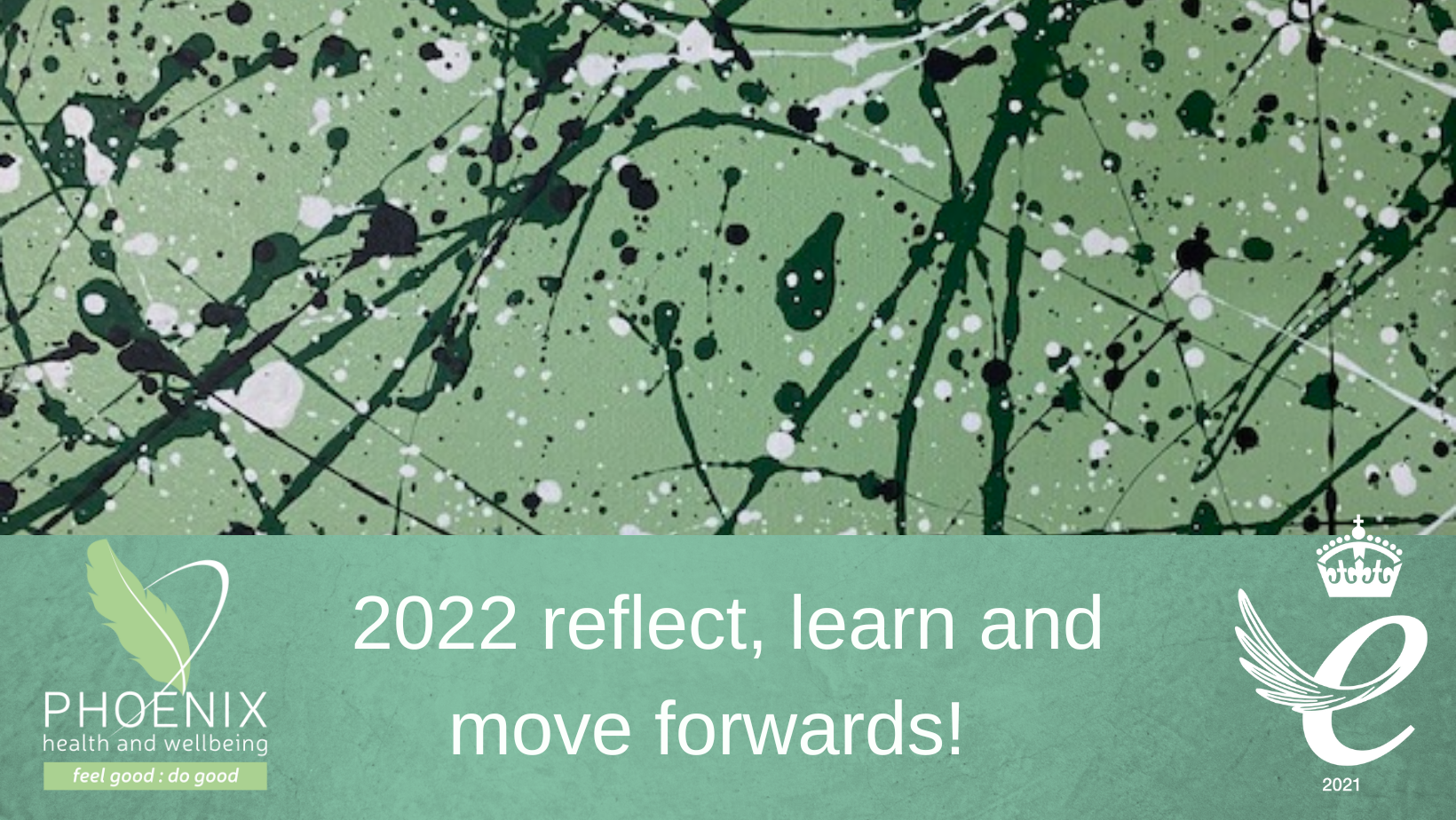
Living with prostate cancer
The following is written by a client who visits our weekly prostate cancer ear acupuncture clinic. It is an open and honest account of his experience. At the end there are some useful statistics, information and links that you may find helpful.
My experience
You’ll probably not know this, but March is Prostate Cancer Awareness Month. These days, there seems to be more things we need to be aware of than there are months in the year. Prostate cancer is having to double up with Ovarian Cancer, Deep Vein Thrombosis, Endometriosis, Brain Tumours and no doubt many others for awareness prominence. I can’t tell you much about these latter conditions but I do have long personal experience of Prostate Cancer. Here’s my story to date:-
Diagnosis
Nearly eleven years ago, aged 56, I found myself needing to go to the toilet two or three times a night, I had no other symptoms, but I’d read about Prostate Cancer and my dad had an enlarged Prostate, so I decided to get checked out. The GP was a bit dismissive because of my relatively young age but he did a rectal examination (the expectation is worse than the event!). He said my prostate felt enlarged but smooth so did I really want to bother with a blood test as everything was probably OK? I pushed him for the blood test, he was reluctant, but agreed to it.
Forty-eight hours later he was on the phone to me with a marked change of attitude. My PSA (Prostate Specific Antigen) blood test result was just under 30 – a normal result for my age would be under 3.5
Within 2 weeks I saw a Consultant at St James’s and for the next four months, my life was lived in two week cycles with a biopsy, various scans, and the results for each all occurring at roughly that interval. The end result was a diagnosis of advanced, moderately aggressive Prostate Cancer. Advanced means that the cancer has escaped beyond the Prostate into other tissue, Prostate cancer typically spreads into lymph nodes and bones. In my case a scan showed a lesion on a rib.
Treatment
Surgery is not an option once the cancer has started to spread so the only treatment option available to me at the time was Hormone Therapy. Simplistically, Prostate Cancer ‘feeds’ on Testosterone, so by stopping the body producing it, the cancer is ‘starved’ of food and hibernates.
The hormone therapy consists of an injection once every twelve weeks into the soft tissue around the stomach. Starving a man’s body of Testosterone obviously produces a number of undesirable but inevitable side effects which may include:- hot flushes (I’ll come back to these later), loss of libido, erectile dysfunction, fatigue, feeling emotional/tearful, weight gain, muscle loss & bone thinning – these latter side effects are likely only after prolonged treatment. There are others, but I’ve listed the most common ones. Not everyone gets them all of course, but I got most of the ones I’ve listed to some degree. The first injection brought my PSA down to 1.4 – a good result.
Five years pass and at a 3 monthly review they decide that my condition is not worsening as they expected – hormone therapy does not work indefinitely and I’m doing too well. They decide to ‘restage’ my cancer, that is repeat all the tests and scans I had when first diagnosed. They showed that the lesion on my rib had not changed an iota and therefore whatever it was, it was nothing to do with my cancer. That meant that my cancer was not advanced but ‘locally advanced’, that is to say it was confined to the Prostate and Seminal Vesicles. This in turn meant that other treatment options were now applicable and the cancer was potentially curable.
A month or so later and I’m having Radiotherapy where the Prostate and affected tissues are zapped with doses of high energy x-rays. This was given in twenty doses, one every weekday for four weeks. Following Radiotherapy, Hormone Therapy continued for a further two years, and I was then taken off medication and my PSA monitored to see what happened. It stayed low for eighteen months and then started to take off again in March 20 just as we went into the first Covid lockdown and the hospitals went into crisis. I was prescribed an oral Hormone Therapy as a ‘holding’ measure.
By August, with the hospital just starting to see cancer patients again, I embarked on another series of scans and a biopsy to figure out what was going on and what treatment would be most applicable next. A series of events then unfolded whereby I narrowly avoided a treatment regime that would have been inappropriate. A final more sensitive scan, not normally available on the NHS, but one I somehow managed to get, showed the cancer had spread to my pelvic lymph nodes. This had been undetectable on the previous scans, so the planned treatment went out of the window and I was offered a permanent return to Hormone Therapy injections with a course of Chemotherapy as a supplementary treatment. I started Chemo in Jan 21 with six rounds at three week intervals. Chemo wipes out your immune system, so having this in the middle of a Covid pandemic was somewhat nerve wracking. I shielded from Jan to May going no further than the garden except for walks and hospital appointments. There are many side effects associated with Chemo as I’m sure you’re aware but I was very pleased to discover that I experienced very few of them. Fatigue was by far the biggest issue followed by intermittent disruption to my sense of taste and some relatively minor hair loss.
It’s now 9 months or so since I completed chemo. Hormone Therapy injections continue and my PSA, although rising very slowly, is still only 0.5.
My cancer is incurable and there will no doubt be further skirmishes in the ongoing battle but for now at least, the cancer is stable and life is good.
Coping with a cancer diagnosis
So that’s my medical story, but there’s another story that runs alongside it for anyone with any form of Cancer. How do you deal mentally and physically with a Cancer diagnosis? What coping strategies come into play, where do you go for advice and support?
When you’re first diagnosed your world is suddenly tilted on its axis and when you eventually stop reeling you need to reassess your situation, your priorities in life and decide how you’re going to move on. Here’s some suggestions:-
Engage with your situation, your Doctors and Consultant. Prepare for your appointments with questions, make a list beforehand, you’ll forget them otherwise. If you have questions between appointments, talk to your Specialist Nurse, you should have been assigned one when you were first diagnosed – or phone Prostate Cancer UK and talk to one of their Specialist Nurses.
Educate yourself about the disease and treatments. There’s lots of great information available on the internet but unfortunately there’s also some that’s contradictory, some that’s misleading and some that’s plain wrong or even dangerous. So how do you know who and what to trust? Start with the Prostate Cancer UK, Cancer Research UK and NHS websites, these contain loads of information that covers all stages of the disease and the treatments you’re likely to encounter. Once you’ve got an understanding from these sources you can start to explore others and you will by then have started to develop a feel for what the mainstream thinking is and what should be considered as a bit ‘off piste’.
Talk to people. Talk to your partner, family and friends, you may find some are reluctant to engage but others will be surprisingly supportive. If you’re within travelling distance of Leeds, visit the Maggies centre where they have Support Specialists, Psychologists and Benefits Advisors to help you, The Robert Ogden centre run by Macmillan also offers many support services. Both are located on the St James’s site and they can help with support for all cancers.
Join a support group. Support groups are particularly helpful, you get to meet loads of people who are in the same boat as you. They’ll have already experienced what you’re going through, they’ll have dealt with the shock, had the treatments, suffered the side effects. You’ll feel less isolated and come to realise that you’re certainly not alone, there are over 400,000 people in the UK living with and after Prostate Cancer. Benefit from the experience of others. A note of caution here however, when comparing notes with others, don’t get hung up on differences between their treatment regimes and your own. Everyone’s cancer and medical background are different, your treatment regime will be ‘tailored’ to your unique circumstances.
There are many complementary therapies that can help relieve the symptoms and side effects of your cancer and your treatment. At Phoenix, you can access Counselling, Massage, Aromatherapy, Reflexology and Reiki which may all help, but of particular interest to those on Hormone Therapy and suffering with hot flushes, as I did terribly, they offer Acupuncture.
Phoenix’s Acupuncture Clinic
Phoenix run a weekly Acupuncture Clinic specifically for the alleviation of hot flushes caused by Hormone Therapy. It’s a group clinic, so as well as benefiting from the Acupuncture you’re also getting a mini–Support Group into the bargain. As to the acupuncture treatment itself, five fine needles are inserted into an ear and left in place for 25mins or so. There’s a guided relaxation session whilst the needles are in place and there’s also time to talk, cancer related, general chit chat and banter. Tea and coffee is provided. Radio Leeds came along to a session a while ago, you can listen to their report here, it lasts 4 mins. Before I started Acupuncture, I was averaging twenty flushes during the day with more through the night that severely disrupted my sleep. After my first Acupuncture session, I didn’t have a single hot flush for two days, they gradually returned but with reduced frequency and severity in the days up to my next session when the cycle repeated. I’ve now been having Acupuncture for several years, I can’t say that my flushes have been ‘cured’, but I rarely get them during the day and the nocturnal ones are less frequent and much less severe.
Health and fitness
Assess other aspects of your health and fitness. Do you smoke, have a high alcohol intake or unhealthy diet, are you overweight or obese (particularly important as some treatments can cause weight gain ), do you do little or no exercise? If the answer to any of these questions is yes, do something about it. Dietary advice is widely available but I’d strongly recommend you avoid ‘fad’ diets. If you need help with any of this, ask for it, talk to your Specialist Nurse or GP. The best way to lose weight is to eat less, exercise more and make sure that the food you do eat constitutes a well balanced diet. You may struggle with exercise but any exercise is better than none and the more you do, the more you’ll be able to do. It’s a fact that those that don’t smoke, drink little alcohol, eat a well balanced diet, control their weight and do moderate exercise tend to get better outcomes. I’m not playing the health police and insisting you become a teetotal vegan that runs marathons but anything you can do in these areas will help. (If you’re already a teetotal vegan that runs marathons, you’re off to a head start!). You can’t of course make all these changes overnight, so prioritise.
Thank you for reading so far, I hope you’ve found the blog interesting and helpful. If you’re male and over 50, get a test every couple of years or so and encourage others to do the same. You never know, you might save someone’s life – maybe even your own!
Useful links, information and statistics
To finish, I’ve included some background information, statistics and weblinks you might find useful:-
The prostate is a small walnut sized gland located immediately below a man’s bladder. The urethra, the tube that drains urine from the bladder, passes through the centre of it. Its primary function is to produce seminal fluid.
Prostate problems don’t usually manifest themselves till a man gets to later life and many Prostate problems are inconvenient, sometimes very, but benign e.g. Prostate Enlargement ( also known as BPH or Benign Prostatic Hyperplasia ) or Prostatitis which is a swelling of the Prostate. These, and Prostate Cancer, all produce similar symptoms, mostly associated with passing urine:-
- Hesitancy – difficulty starting the urine flow
- Urgency – needing to go suddenly
- Increased frequency – particularly at night
- Leakage
- Weak flow
- Feeling that your bladder doesn’t fully empty
- Blood in urine or semen
- Burning sensation when passing urine
- Pain in lower back, pelvis, hips and surrounding areas
Unfortunately however, early stage cancer often causes no symptoms whatsoever so all men over 50 should get themselves tested from time to time and a man of any age, with any of the above symptoms, should also get checked out. Although I said earlier that Prostate problems don’t usually start till later in life, I’ve met two men diagnosed with Prostate Cancer in their thirties, and several in their forties – one of them was diagnosed at 33 with an aggressive, life threatening cancer. Just because you have one or more of these symptoms, it doesn’t mean you have Prostate Cancer of course – but you might, so get it checked! Prostate Cancer is very curable/treatable if caught early enough. I should point out that many Prostate Cancers are very slow growing and many men die with Prostate Cancer rather than from it, but unless you get checked of course, you don’t know which category you’re in.
Some statistics:
- There are over 400,000 men living with or after Prostate Cancer in the UK
- Another 47,500 are diagnosed every year – that’s 130 a day.
- Every 45mins a man dies from Prostate Cancer – that’s over 11,500 a year.
- One in eight men will be diagnosed with Prostate Cancer in their lifetime.
- You are two and half times more likely to get Prostate Cancer if your father or a brother has it and at even greater risk if they were diagnosed under 60.
- Interestingly, your risk is also higher if your mother or a sister has had Breast Cancer
- Black men are twice as likely to get Prostate Cancer – so it’s doubly important they get tested.
- Asian men are less likely to get it.
Links:
Prostate Cancer UK:- https://prostatecanceruk.org/
NHS – Prostate Cancer:-https://www.nhs.uk/conditions/prostate-cancer/
Cancer Research UK:- https://www.cancerresearchuk.org/about-cancer/prostate-cancer
Maggies Leeds:- https://www.maggies.org/our-centres/maggies-yorkshire/
Robert Ogden Centre:-https://www.leedsth.nhs.uk/a-z-of-services/leeds-cancer-centre/leeds-cancer-support/
Leeds Prostate Cancer Support Group:-https://www.lpcsg.co.uk
Harrogate Prostate Cancer Support Group:-https://sites.google.com/site/prosperharrogate
York Prostate Cancer Support Group:-http://www.yspcsg.org.uk/
Phoenix Health and Wellbeing https://www.phoenixhealthandwellbeing.org.uk/
https://www.phoenixhealthandwellbeing.org.uk/referred-services/acupuncture-prostate-cancer/
Phoenix’s Acupuncture radio chat https://www.youtube.com/watch?v=jN4rCppGJYk&ab_channel=PhoenixHealthandWellbeing
Phoenix Health & Wellbeing is a Charity. We offer support to people who have chronic health issues and low incomes. This support is funded by social enterprise. By coming to us for a therapy treatment you are helping others who would not otherwise be able to access the services that we offer.
Opening times:
Monday to Thursday from 10:00 to 20:00
Friday and Saturday from 10:00 to 16:00
Sunday closed.
Book your treatment via our website or call 0113 234 0818 to speak to one of the team




